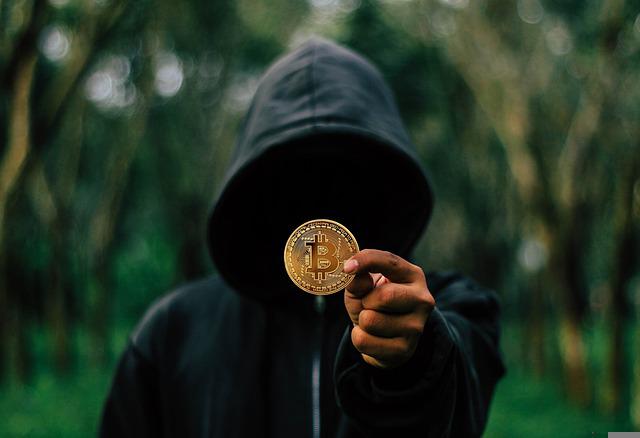An explanation of Bitcoin
As the first decentralized digital currency, Bitcoin is essentially a set of coins that can be sent via the Internet. The year that bitcoin was created was 2009. The creator's real name is unknown, but they went under the moniker, Satoshi Nakamoto.
Advantages of Bitcoin
Direct online transactions between individuals using bitcoin are possible. There is no need for a clearinghouse or bank to serve as a middleman. As a result, the transaction costs are excessively cheap and are available for usage in all nations. There are no requirements to establish a bitcoin account, and there are no restrictions either. More businesses are beginning to accept them every day. With these, you may make whatever purchase you wish.
How Bitcoin works
You can convert dollars, euros, or other fiat currency into bitcoin. Similar to using any other country's money, you may purchase and sell. You must keep your bitcoins in devices referred to as wallets to maintain them. These wallets can be found on your computer, mobile device, or on websites run by third parties. It's quite easy to send bitcoins. Like sending an email, the procedure is simple. With bitcoins, almost anything is available for purchase.
Why Bitcoins?
Any form of the product may be purchased anonymously using bitcoin. International payments are incredibly simple and inexpensive. This is because bitcoins are not truly associated with any one nation. They are not controlled in any way. Because there are no credit card fees, small companies adore them. Some people just purchase bitcoins as an investment with the hope that they would appreciate in value.
Methods for Purchasing Bitcoins
1. Purchase on an Exchange: Individuals are permitted to purchase or sell bitcoins on websites referred to as bitcoin exchanges. They carry out this action using the currencies of their home countries or any other money they possess or want.
2. Transfers: People may simply transmit bitcoins to one another using internet platforms, desktops, or mobile devices. It functions just like sending money digitally.
3. Mining: A group of people known as miners guards the network. Regular rewards are given to them for all recently validated transactions. These transactions are entirely validated before being entered into a public, transparent ledger. By employing computer gear to tackle challenging arithmetic problems, these individuals engage in competition to mine these bitcoins. Equipment costs a lot of money for miners. There is a practice known as cloud mining nowadays. By employing cloud mining, miners just invest money in other websites that supply all necessary infrastructure, cutting down on hardware and energy costs.
Bitcoin storage and preservation
These bitcoins are kept in items referred to as digital wallets. These wallets can be found on PCs or on the cloud. A wallet resembles a digital bank account in certain ways. These wallets enable users to send and receive bitcoins, make purchases, or just store bitcoins. These bitcoin wallets are never covered by the FDIC, unlike bank accounts.
- several wallet types
1. Cloud-based wallet: One benefit of having a cloud-based wallet is that users don't have to install any software on their computers or wait around for protracted synchronization procedures. The drawback is that users risk losing their bitcoins if the cloud is breached. These websites are really secure, nevertheless.
2. Computer wallet: Having a wallet on a computer has the benefit of keeping bitcoins hidden from the rest of the internet. The drawback is that users could remove them if they format their computer or get a virus.
- Anonymity using Bitcoin
There is no requirement to give the other party's true name while doing a bitcoin transaction. Every bitcoin transaction is documented in a log that is accessible to everyone. There are no names of individuals listed in this record; simply wallet IDs. Therefore, each transaction is essentially private. No one can trace a person's purchases or sales.
- Innovation using bitcoin
Bitcoin introduced a whole new paradigm for innovation. Since the entire bitcoin program is open source, anyone may examine it. The current reality is that bitcoin is revolutionizing global banking in much the same way that the internet revolutionized publishing. The idea is a fantastic one. New concepts emerge when everyone has access to the whole global bitcoin market. Bitcoin does really reduce transaction fees. Accepting bitcoins doesn't cost anything, and the setup is simple. Chargebacks are not a thing. The bitcoin community will inspire new enterprises of every description.
Value of Bitcoin Compared to Other Cryptocurrencies
Ethereum, the second-largest cryptocurrency by market size, is more like oil if Bitcoin is considered to be digital gold. Like oil, its worth is tied to its practical applications, even if such applications aren't yet widely accepted.
Although oil is valuable in and of itself, you may also invest in oil futures on the commodities market or the inequities of energy-related firms. The native currency of Ethereum is called ether, therefore cryptocurrency investors may choose to invest there.
The Ethereum blockchain serves as the foundation for innovation and growth in the cryptocurrency field, from decentralized peer-to-peer financing to the sale of digital art utilizing NFTs. According to Routledge, this gives its currency, ether, an inherent value: access to that network.
Ethereum may have a more obvious underlying use case than Bitcoin, but it does not ensure that its value will stay the same or rise. Experts advise limiting your cryptocurrency investments to Bitcoin and Ethereum since there are dozens of alternative cryptocurrencies that all promise to fill some unmet demand or present an opportunity. There isn't enough information to make any type of firm forecasts about how your investment may develop in the future, and all bitcoin assets are unregulated and speculative.





